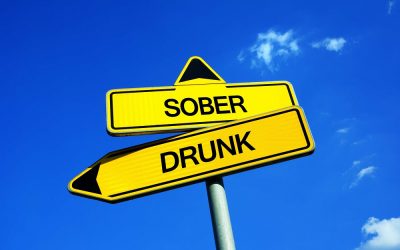More moderate to severe symptoms, which usually appear during peak withdrawal time of 24–72 hours after your last drink, may also include hallucinations and seizures. Alcohol withdrawal syndrome is a condition that can happen when you suddenly stop drinking after prolonged heavy alcohol use. The symptoms of alcohol withdrawal can be fatal and require immediate medical attention. Remember that other people are living with alcohol withdrawal symptoms.
General Health
It is crucial, however, that individuals with a history of severe withdrawal or those at risk of serious symptoms seek medical advice before attempting withdrawal at home. Alcohol functions as a depressant, and with regular consumption, the body adjusts its neurological functioning to compensate for its effects. When alcohol is no longer present at expected levels, the body’s adjusted neurochemical state becomes unbalanced, leading to the physical and psychological symptoms of withdrawal. If you need to quit drinking, don’t let alcohol withdrawal scare you off. There are medications and treatments available that can help you get through those first early days of no alcohol consumption. A healthcare provider may also suggest vitamins and dietary changes help with your withdrawal symptoms.
Why Do People Experience Alcohol Withdrawal?
An effective coping technique is to “fast forward” your relapse fantasy. Instead of thinking about the momentary relief that will come with the drink, think beyond that to the inevitable pain that will come after. Think about all your work thus far and how much of a setback that would be. Consider how drinking again will only prolong your addiction and create more pain as you enter detox again. Try to mentally connect your alcohol consumption to pain, not pleasure cure for alcohol withdrawal or relief. You may reach a point where you start drinking again just to relieve your symptoms.
Can we count on your support?
That number reduces to less than 15% who relapse after five years of sobriety. For the greatest chance of long-term sobriety after completing an inpatient or outpatient program, you should participate in local support groups and continue with counseling. It will not only make a huge difference in your life, but also the lives of those around you such as family members and friends. Understanding the specific symptoms and their severity can guide treatment decisions and is critical for ensuring patient safety. For those at risk of severe withdrawal, treatment in a facility equipped to handle delirium tremens is recommended to manage the potential complications effectively.
- Detoxing from alcohol at home might be possible for people with mild symptoms.
- If you are still experiencing withdrawal symptoms after three days, talk to your healthcare provider.
- Providers may recommend using other seizure medications to manage withdrawal symptoms during severe alcohol withdrawal, either instead of or in combination with benzos.
- A lack of needed nutrients can potentially make your withdrawal symptoms more intense.
- Alcohol withdrawal usually starts within 8 hours after the last drink but can occur days later.
- If you’re given this type of medication, you’ll need to be closely monitored.
In addition, withdrawal delirium may develop and persist despite administration of high doses of BZ and adequate control of minor AW symptoms (Hersh et al. 1997). Alcohol withdrawal is definitely no walk in the park, which is why you are going to need all the help you can get. Whether it’s by diminishing craving, helping with dizziness, or helping with anxiety, these powerhouse home remedies for alcohol withdrawal are everything you need.
Alcohol Withdrawal Treatment

Until controlled studies of adequate duration and numbers of patients are studied, the role of pharmacological treatment of patients with AW symptoms will continue to be debated. Patients with AW can be treated safely and effectively either within a hospital or clinic (i.e., inpatient treatment) or on an ambulatory basis (i.e., outpatient treatment). Although studies have compared the effectiveness of outpatient versus inpatient detoxification, no specific criteria have been rigorously tested. Alcoholics are often deficient in electrolytes, or “minerals” (e.g., magnesium, phosphate, and sodium). Because these substances play a major role in metabolism, electrolyte disturbances may lead to severe and even life-threatening metabolic abnormalities.

With the change in GABA activity in the brain, excitation and anxiety build. Withdrawal is a physically and psychologically uncomfortable experience — so much so that many heavy drinkers will continue drinking despite negative consequences just to avoid withdrawal. With continued and excessive alcohol consumption, alcohol interferes with the brain’s natural functions, disrupting neurotransmitters that send messages to the CNS. Treatment providers are available 24/7 to answer your questions about rehab, whether it’s https://clogsperu.com.pe/2020/09/08/a-brief-guide-to-a-a-alcoholics-anonymous/ for you or a loved one. Submit your number and receive a free call today from a treatment provider. Frequent meetings with an alcohol counselor are important for individuals to communicate and receive guidance during their recovery.
Treatment for Alcohol Withdrawal
If you think you are experiencing severe alcohol withdrawal or DT, call your doctor or seek emergency services as soon as possible. Your healthcare provider will determine the right treatment plan for you. It is important to follow your healthcare provider’s recommendations regarding any prescription medications. The goals of treating alcohol withdrawal are to reduce symptoms, prevent complications, and help reduce or stop alcohol intake.
The treatment options for alcohol misuse depend on the extent of your drinking and whether you’re trying to drink less (moderation) or give up drinking completely (abstinence). By seeking detox treatment, drug addiction treatment you can get the care and support you need to withdraw from alcohol safely. After this first week is over, you may experience some residual withdrawal symptoms, specifically those affecting mood, for up to a few weeks. The initial detox stage of alcohol withdrawal usually takes about one week.

اضف تعليقا